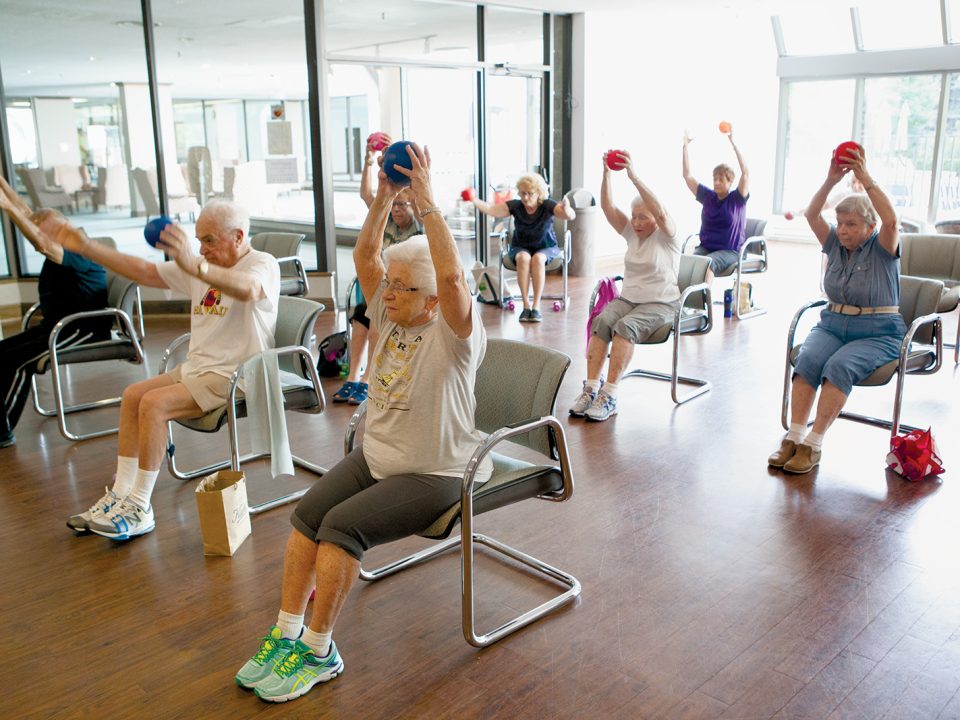
How To Avoid Burnout
June 30, 2018
Nurse-led model that improves acute care for residents to be expanded
July 15, 2018Why choose aged care?

An aged care nurse explains the attractions of the field.
When you think of aged care, what comes to mind? Old helpless people, showers, making beds, smelly nursing homes (the types you see being sanctioned on TV)? Let’s face it, who wants to work in a nursing home. We are told it is where you go to end your career not start your career. Well, put aside your stereotypical thoughts and keep reading.
There is such a shortage of young energetic nurses in this field. In fact, it is very rare that you find a new grad going down the aged care path. The situation has become so bad that even the universities have changed their curriculum.
Once upon a time (not that long ago), you used to do a semester of aged care in first year. That was your basic nursing skills taught right there. How to make a bed, shower, simple wound management, TPRs, BP, etc. When I went to have a look at what universities are doing now … some don’t even have gerontology in their core subjects; it is an elective. And all the universities don’t teach gerontology until third year, when you have already made up your mind where you would like to head with your career. Most new grads don’t even know that you can do a new graduate program in aged care. Yes you can (I did it eight years ago through aged care career pathways).
No wonder no-one chooses aged care as a career. Why would you when other specialities are portrayed as more exciting?
Well, I’ll tell you why. No matter what field you work in, you will end up looking after the elderly, unless you specialise in midwifery or paediatrics. 80% of hospital patients are elderly. I found that out during my training when most of the wards I visited were full of geriatrics anyway. The other thing is when you work on a ward, let’s say orthopaedics, you specialise in that field, you concentrate on that area, only see the patient for a short time, then send them on their merry way, hopefully never to see them again.
When you work in an aged care facility, you have to know it all. It is exceptionally comprehensive. The patients (or residents) have a multitude of issues. And they are there for the long haul, so as an aged care nurse, you need to have knowledge in everything, otherwise, you are not providing holistic care.
The type of things you need to know are: mental health nursing, neurology, wound management, drug and alcohol rehab nursing, orthopaedics, respiratory, cardiac, urology, gastroenterology, pharmacology, palliative care, rheumatology, emergency medicine, gynaecology, diabetes management, stoma management and much more. On top of all this, you also have to have some insight into and knowledge of some of these allied health areas: OT, physiotherapy, speech pathology, dietitian, social work and counselling, OH&S, fire safety officer.
As I said before, it is very comprehensive. For those who think you would lose skills working in an aged care facility, it is the opposite. It may not be as technical as acute care nursing, but honestly, the only thing you don’t do that the hospital staff do is cannulate and work a drip pump, otherwise, we do everything hospital staff get to do. We also get slightly more of a say in what treatments our residents get as opposed to hospital patients. You get to work very closely with GPs and they discuss with you what is the best treatment your resident needs, rather than telling you what your patient’s treatment will be. The buck basically stops with you. You are the advocate for the resident.
The relationships you build with the residents are remarkable. How many people can say they have 44 grandparents (or however many are in the home)? Each and every resident touches your heart. For me, I get very attached to the demented ones (don’t ask me why, they just make me laugh the most). I’m sure you get attached to patients on the ward, but the reality is they are just in the acute setting for a very short time. Some of our residents have been with us for many years, so you can imagine the bond you develop with the resident and their family.
Last but not least, it is incredible (and surprising to many) how rewarding it is. It is true nursing the way it was supposed to be. Caring for every aspect of the patient, not just one area. When you get a thank you from a resident or a relative and their face lights up, you get this warm and fuzzy feeling that you just can’t beat. You have made their life that little bit more bearable and made them comfortable in their final moments. I can tell you there is no greater honour and nothing more special.
When choosing your specialty as you are about to graduate from uni or are seeking a new area to nurse in, don’t forget there is a specialty that greatly needs you and you may enjoy embarking on the journey of aged care nursing.
Do you have any thoughts or questions about aged care nursing? What are your feelings about it?
This article was originally published on www.nurseuncut.com.au on 12th November 2009 by Shoils.










